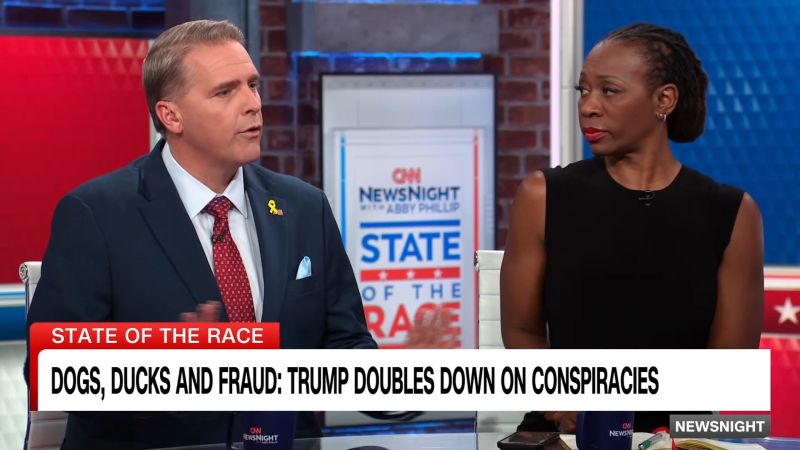In the lead-up to the election, Donald Trump has been promoting increasingly bizarre and outlandish conspiracy theories. One particularly strange theory he has pushed is the idea that Haitian immigrants in Springfield, Ohio are eating pets. This claim is not only baseless but also dangerous, as it can lead to fear and discrimination against a vulnerable group of people. The panelists express concern about the spread of these conspiracy theories and the impact they can have on society.
The panelists discuss how conspiracy theories like the one promoted by Trump can be harmful in a variety of ways. Not only do they spread misinformation and incite fear, but they can also lead to violence and discrimination against marginalized groups. By promoting these theories, Trump is creating a culture of mistrust and division that can have lasting consequences for society. The panelists stress the importance of addressing and debunking these conspiracy theories before they can cause harm.
The discussion delves into the broader implications of Trump’s conspiracy theories and the impact they can have on the political landscape. By promoting baseless claims and stoking fear and division, Trump is further polarizing an already deeply divided country. These conspiracy theories serve to distract from real issues and prevent meaningful dialogue and progress from taking place. The panelists emphasize the need for critical thinking and fact-checking in order to combat the spread of dangerous conspiracy theories.
The panelists also raise concerns about the role of social media in amplifying and spreading these conspiracy theories. Platforms like Twitter and Facebook have made it easier than ever for false information to go viral and reach a wide audience. This can have serious consequences, as misinformation can quickly take hold and influence public opinion. The panelists stress the importance of holding social media companies accountable for the content that is shared on their platforms and taking steps to prevent the spread of harmful conspiracy theories.
In conclusion, the panelists express alarm at the growing trend of conspiracy theories being promoted by political leaders like Donald Trump. These theories not only undermine trust in institutions and sow division among the public, but they can also have real-world consequences for vulnerable communities. It is essential for society to push back against this culture of misinformation and fear-mongering in order to preserve democracy and protect the rights of all individuals. The panelists call for a renewed commitment to truth and reason in order to combat the spread of dangerous conspiracies.


